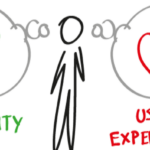I’ve been around so long now that that the “newbie” perspective doesn’t come easily to me. Lucky for me. But as you might expect, when I talk to new disclosure practitioners and ask them about their biggest challenges, the most common one is that they’re overwhelmed.
That answer isn’t surprising given that even us old-timers are overwhelmed these days. The pace of change – whether it be regulatory, stakeholder-driven or even world events-driven – is a far cry from when I started out. Back then, the SEC conducted one, maybe two, major rulemakings per year in the corporate disclosure arena. These days, a half dozen is a light year. It’s a lot to take in.
If a new practitioner is asked to tackle a Form 10-K, the rules and regulations associated with that are now long and complex. It will take a few years to truly get to know what you’re doing with the thing rules wise. Not to mention that you need to learn a company’s business and background in order to make it work.
The other thing that takes some time to learn is to look beyond the numbers and language on the page and identify what might be missing. Not being too focused on the details. Being able to see the big picture is a skill that takes experience to develop.
The ability to take a step back and ask “What is missing here?” It takes a few years to know what are the right questions to ask. It’s a particularly challenging time for newbies since many workplaces continue to have a heavy virtual workplace component.
So you might not learn the skill of asking the right questions. Or even the skill of asking questions period. You have to ask questions to learn. Those hallway conversations are critical to developing someone in their career.
If you happen to be in-house and are just learning about disclosure practices, the good news is that your company will already have a framework and a cadence in place that will help bring you along (unless it’s a newly public company).
The bad news is that you’ll not only have to learn the SEC’s rules and regulations, you’ll also have to learn about how those apply to your company uniquely. How they apply to your industry singularly. Each industry is distinct and depending on which industry category your company falls into, the application of the rules and regulations can change a lot.
You’ll need to learn about how to talk about, how to draft disclosure, that fits your company’s own culture and business. And learn about what is truly important about your company that should be made transparent in its disclosures. And how what is important with – and for – the company changes over time.
You’ll also have to proceed with confidence – if warranted – if you’re replacing someone who has left and you’re faced with the decision to keep prior disclosures pretty much as they were or should you proceed and try to improve upon what was done before. It’s so easy to fall into the trap of simply copying what was done before. But you should push yourself to make changes in an effort to clarify and modernize if you can.
Good transparent disclosure is an art unto itself. Take pride in being considered to be an artist…


























